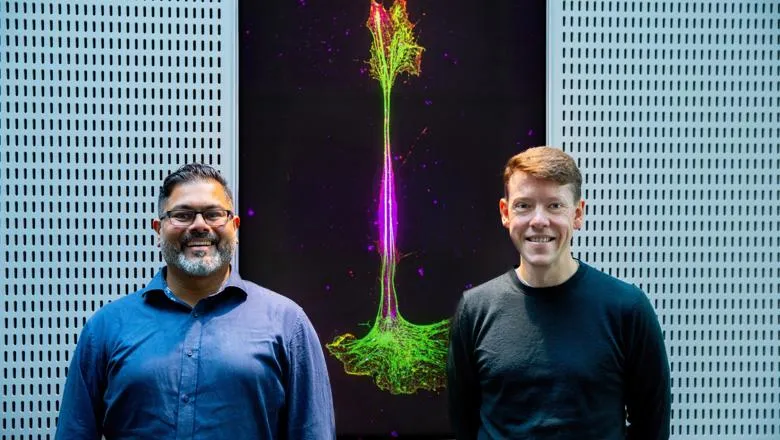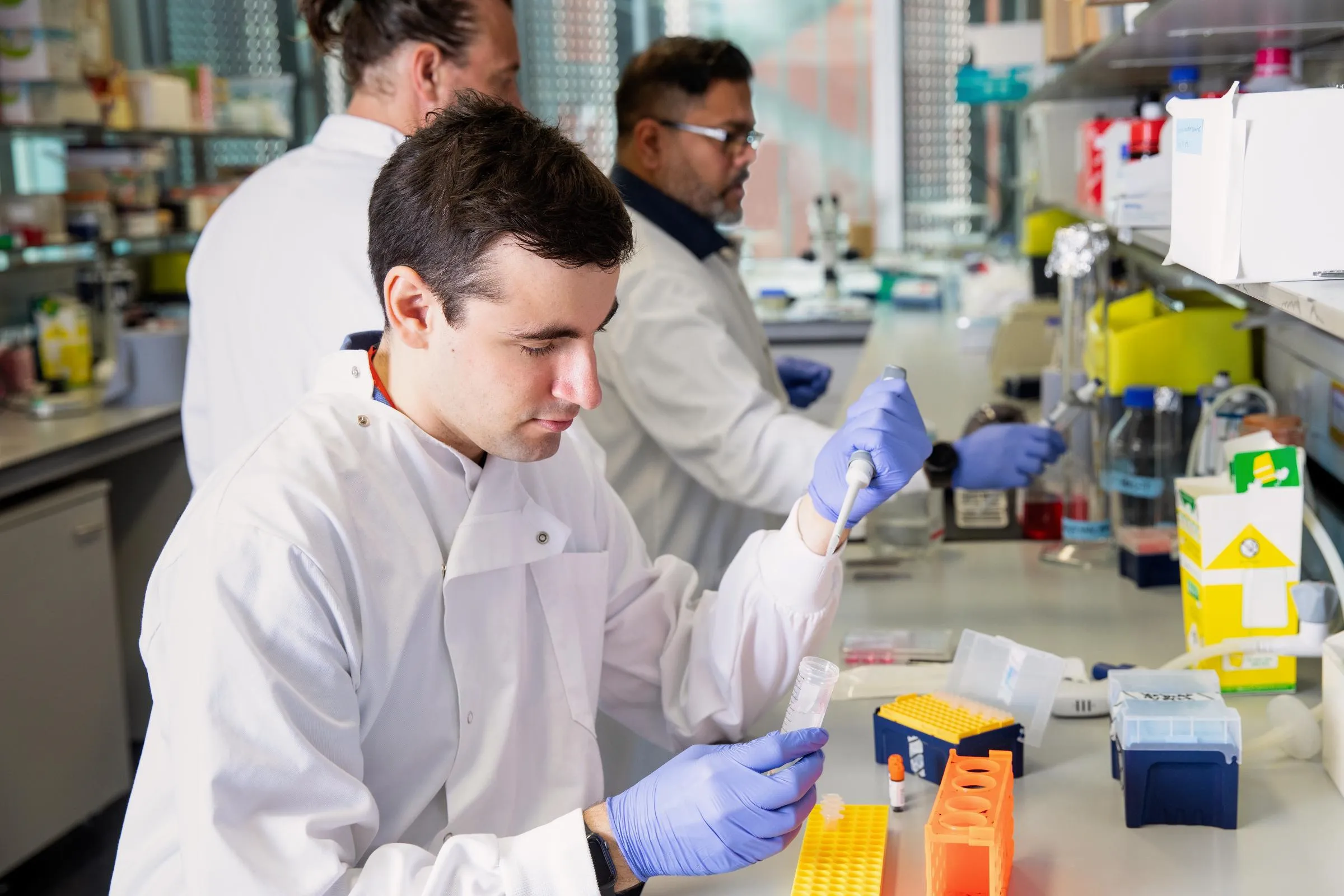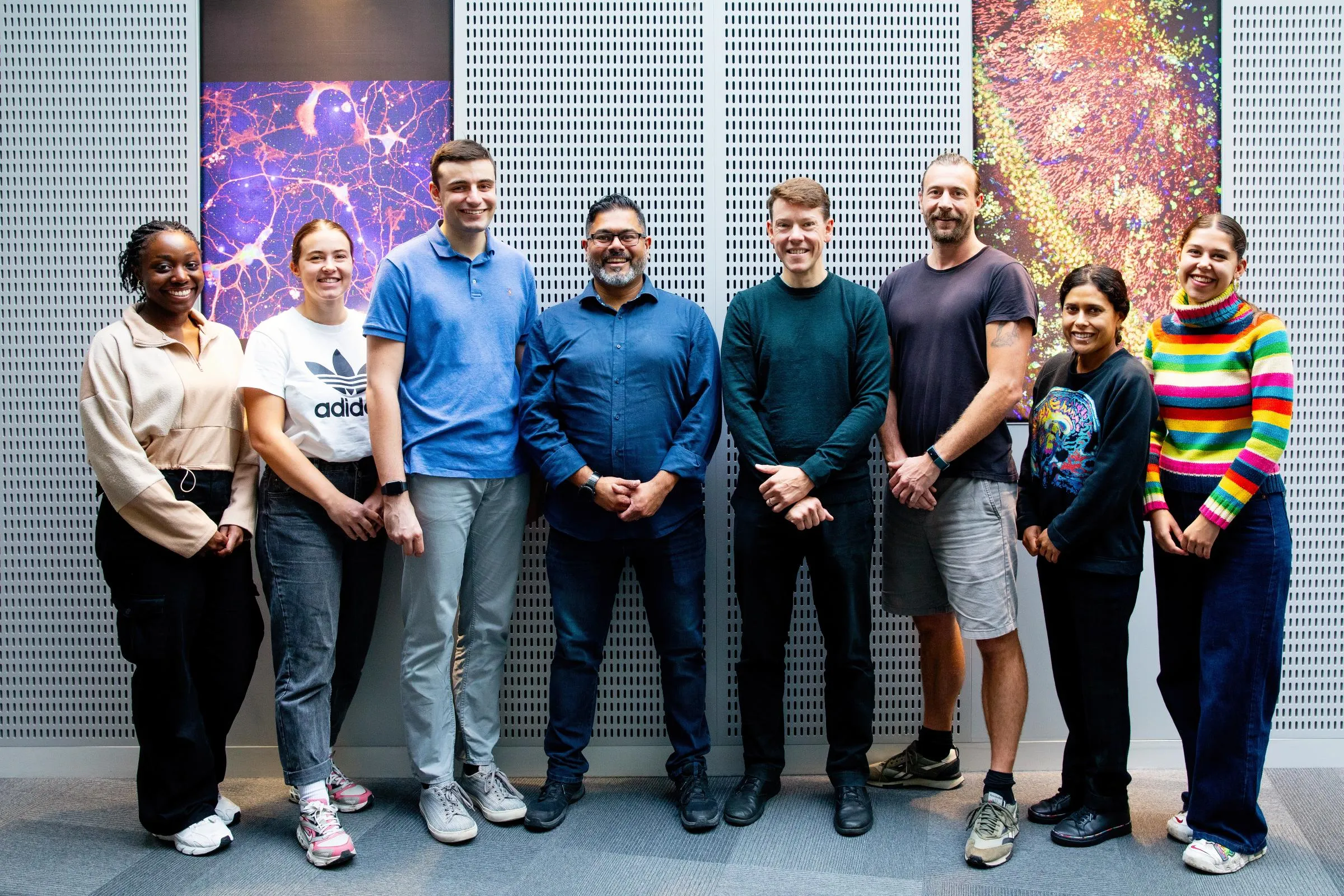bit.bio, the company coding human cells for novel cures, and the Institute of Psychiatry, Psychology & Neuroscience today announce a collaboration to build multi-cell models of the human brain using bit.bio's ioCells™️.

Professor Deepak Srivastava and Dr Anthony Vernon will create different bi- and tri-cell models by combining three ioWild Type Cells - ioGlutamatergic Neurons™️, ioGABAergic Neurons™️ and ioMicroglia™️. The cells have been precision reprogrammed from induced pluripotent stem cells (iPSCs) using bit.bio's opti-ox™️ technology, meaning they are consistent at scale.
The human brain is made up of numerous different cell and sub-cell types. Subtle defects in one cell type can unbalance this highly-connected system and give rise to neuronal and psychiatric disorders. Multi-cell models are therefore essential to reveal some of the more complex aspects of a disease that cannot be studied in mono-culture systems. Furthermore, alterations in the functional properties of one cell type may impact the ability of a second cell type to work correctly; such interactions can only be studied using a multi-cell model.
It's the unique properties of bit.bio's ioCells that will enable us to create a consistent and scalable multi-cell model. Both Dr Vernon and I have used ioCells extensively in our work and have seen first-hand the consistency they offer. These properties significantly reduce potential concerns that variability in experimental data could be due to variation in the cells in our models. Once we have created our multi-cell models with ioCells we expect they will provide a useful reference for use across the scientific community and enable breakthroughs in our understanding and treatment of neuronal and psychiatric disorders."
Professor Deepak Srivastava PhD, Professor of Molecular Neuroscience, Group Leader at the MRC Centre for Neurodevelopmental Disorders and Director of the Wohl Cellular Imaging Centre
Professor Srivastava and Dr Vernon will run different experiments to find the correct ratios of each cell type and the most appropriate conditions to create optimal co-culture models. Once the protocols have been developed, they will be shared with the wider scientific community for use across research and drug discovery.
"The neurobiology of psychiatric disorders with a putative neurodevelopmental origin, including schizophrenia, remains incompletely understood. Whilst antipsychotic medications can be effective, they do not address all symptoms of schizophrenia and a significant proportion of individuals show no therapeutic response to these agents. Moreover, they are associated with significant side effects. As such there is a clear need to develop novel treatment strategies, for which novel, human in vitro cellular model systems will be extremely useful in the context of drug screening and functional genomics approaches."
Dr Anthony Vernon, Reader in Neuropsychopharmacology and Group Leader at the MRC Centre for Neurodevelopmental Disorders
Professor Srivastava and Dr Vernon will also use the models in their own research and will have access to the Wohl Cellular Imaging Centre at King's - an advanced light microscopy centre with a focus on neuroscience research. At the centre, co-culture systems can be characterised at scale and with remarkable resolution (for instance at the synapse level) that could allow the identification of novel biological mechanisms of cell type interaction in the central nervous system and open new avenues for treatment.

We are delighted to be working closely with the team at King's College London to develop these new multi-cell brain models, which aim to further advance our understanding of neurodevelopmental disorders and other mental health problems. Collaborations such as this between academia and industry, which bring together expertise, share knowledge, build trust, and lead to new research tools and protocols for the benefit of the scientific community, are vital for the advancement of research and drug discovery."
Farah Patell-Socha, VP Research Products at bit.bio
The collaboration will run for three years, initially developing models using the three ioWild Type products. bit.bio and the team at King's College London also intend to incorporate ioDisease Model Cells™️ - with gene edits that mimic what happens in a particular disease - into further multi-cell models of the human brain.









